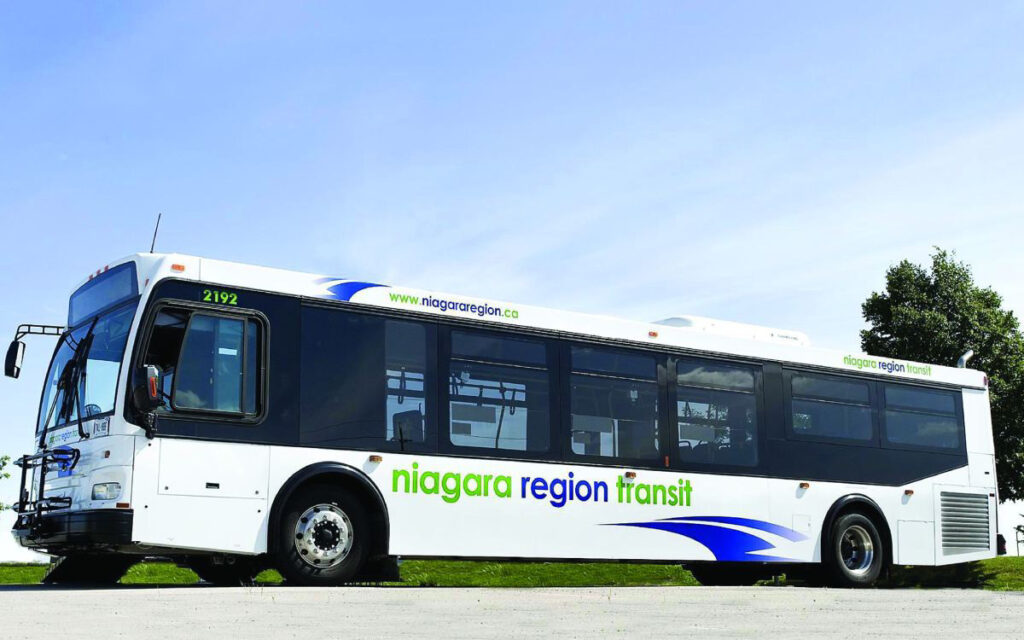
Niagara Region’s budget committee voted to delay consideration of the proposed transit budget increase until November. Photo Credit: NRT/Facebook.
It’s Groundhog Day for the Niagara Transit Commission.
Last fall, the Niagara Transit Commission proposed a significant budget increase of 7.8 per cent. This proposed budget increase was endorsed by members of the Niagara Transit Commission, now headed by Regional Councillor and St. Catharines Mayor Mat Siscoe, but it was ultimately rejected by Niagara Regional Council’s Budget Review Committee of the Whole because of budgetary pressures.
That rejection forced the Commission to reduce its proposed budget increase to 5.57 per cent, which was ultimately approved by Regional Council.
This year, the Niagara Transit Commission is proposing a 5.9 per cent budget increase. Yet, as was the case last year, this increase was not shepherded through council unscathed: Niagara Region’s budget committee voted to delay consideration of the proposed budget increase until November, after having had the option to approve it last week.
The present proposal is to increase the transit operating budget by $2.1 million and add a special levy onto taxpayers’ property tax bills of $2.16 million to help pay for capital financing. Cost pressures include higher gas prices and higher gas taxes, driven by the federal carbon tax.
Fort Erie Councillor and budget committee member Tom Insinna was a major advocate for a final vote delay, saying he wants more information regarding several factors within the budget, including assessment values (in particular cost increases for Fort Erie), student bus services and intermunicipal travel.
Other councillors, such as Thorold’s Terry Ugulini, from smaller municipalities expressed cost-sharing concerns as well.
However, staff explained that each lower-tier municipality must contribute toward the Niagara Transit Commission’s overall budget, and the percentage cost handed down to each municipality lines up with its service hours and demand.
For example, Fort Erie’s portion of the bill is set to increase from 5.6 per cent to 7.0 per cent (more than a 28 per cent increase), because of an increase in service hours, while costs for other municipalities, like Pelham, are set to fall.
Cost allocations are also related to the growth of municipalities and their relative weight within the region.
Some councillors on the budget committee also expressed concerns with the state of Niagara Transit Commission’s vehicles and the timeliness of service.
Councillor Haley Bateman raised questions about accessible transit vehicles specifically.
General Manager Carla Stout attributes much of the concerns to the ongoing stresses of transit amalgamation and is hopeful things will continue to be ironed out. She also touted progress, including the harmonization of fares, set to be introduced on July 1, 2025, at $3.50.
There will be, as of now, no new service additions to the Niagara Transit Commission’s routes in 2025 to keep costs down for taxpayers. A strategic review of services is, however, ongoing.
The Niagara Transit Commission’s proposed budget increase will be again considered on Nov. 7.

Jay Goldberg is the Ontario Director at the Canadian Taxpayers Federation. He previously served as a policy fellow at the Munk School of Public Policy and Global Affairs. Jay holds a Ph.D. in Political Science from the University of Toronto.




















